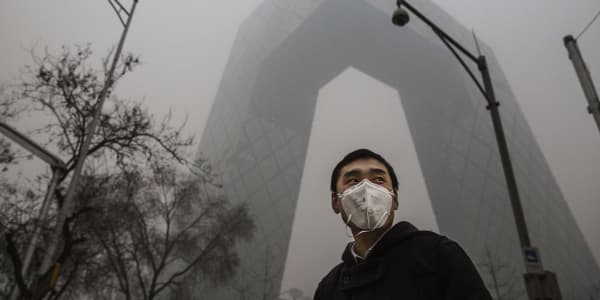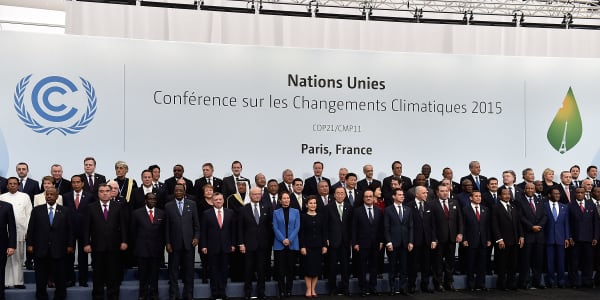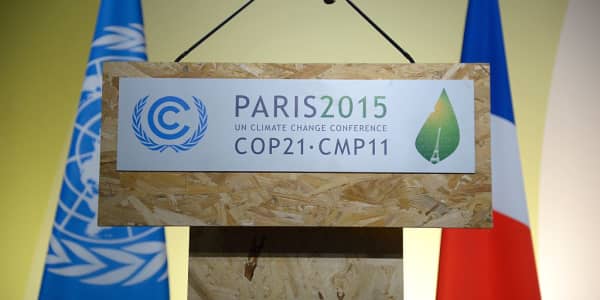
The renewable energy industry can stand on its own without subsidies -- providing other power companies also forgo their own support, the chief executive the world's largest wind turbine company has told CNBC.
Anders Runevad, CEO and president of Vestas instead criticised the subsidies the fossil fuels industry continued to garner.
"We have to remember that this is a regulated industry. If we cut out all subsidies including the 500 billion (dollars) on fossil fuel, I'm very confident that we would be able to stand on our own without subsidies," Runevad told CNBC at the United Nations COP21 climate conference in Paris.
"Subsidy free on all the others; that is a market that I definitely would welcome."
The International Energy Agency estimated in 2013 that subsidies for fossil fuels totalled $548 billion, whereas renewable energy subsidies came to just $121 billion.
This disparity is likely to continue as countries make further cuts to renewable energy subsidies. Earlier this year, the U.K. government announced plans to completely phase out public subsidies, starting with cuts to support for wind turbines and solar panels.
Despite the threat of cuts, Vestas' share price has risen 104 percent year-to-date, while orders have increased 46 percent for actual nine month period year-over-year, according to Runevad. In August, he claimed the company had an order backlog worth 16.9 billion euros ($18.26 billion).
Runevad also hoped that the COP21 conference would create a stable political environment, which would support investment into renewable sources of energy.
"What we rely on is long term political policy framework, because these are long investments in energy," he explained. "It is a 20-to-25 year investment; so that we have security in the long term policy is important for the business going forward."





